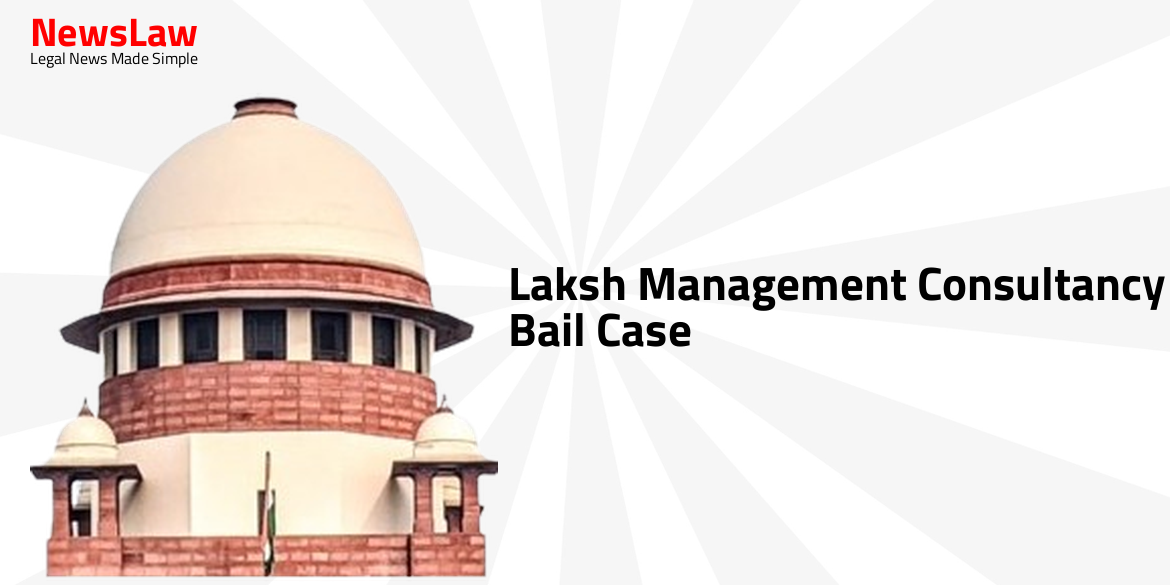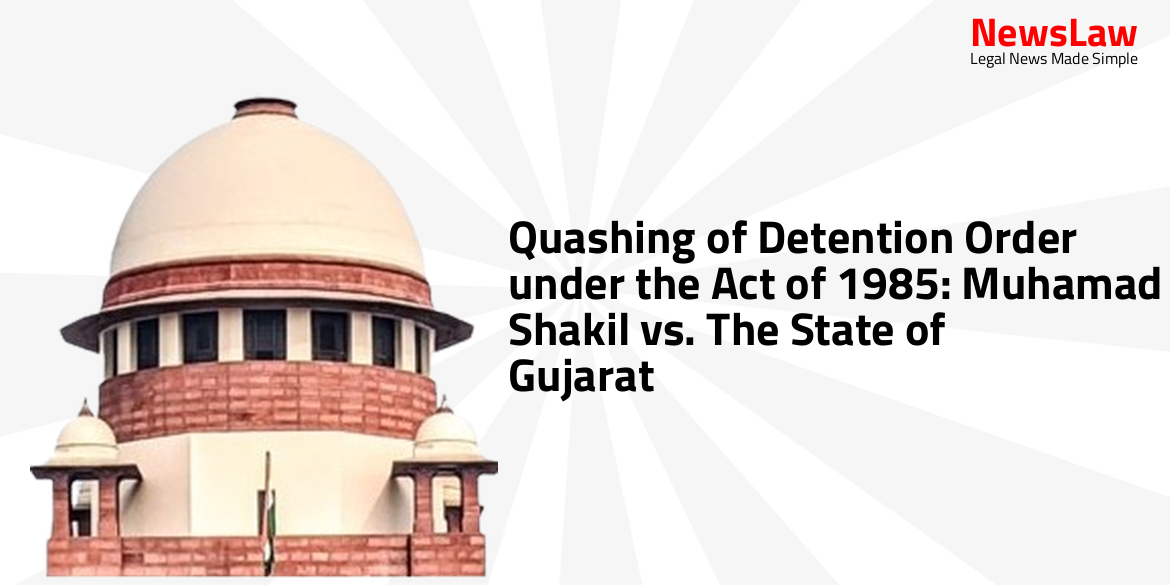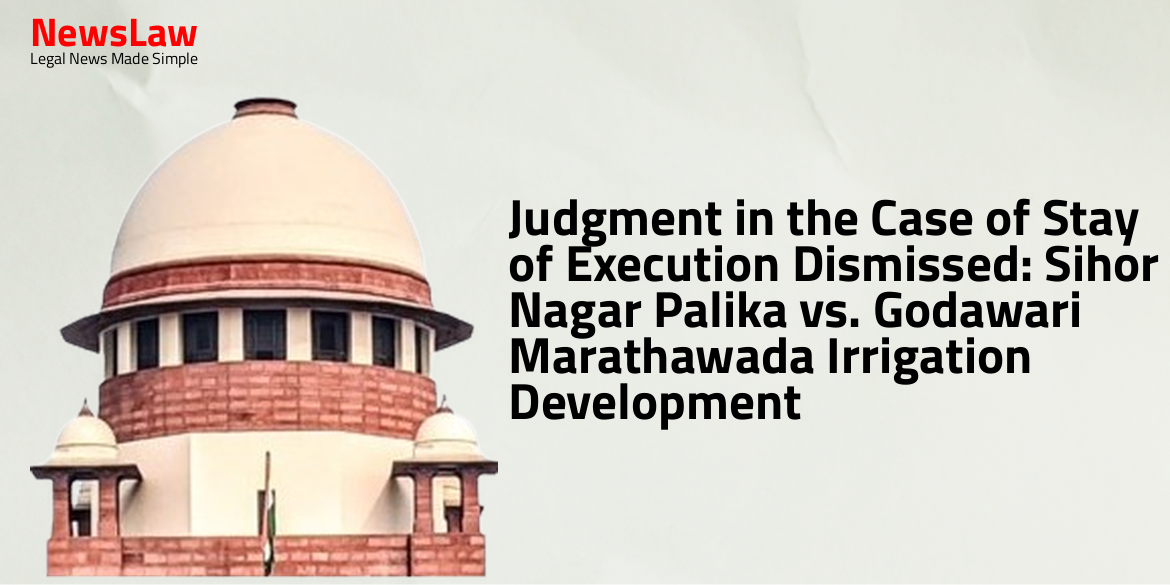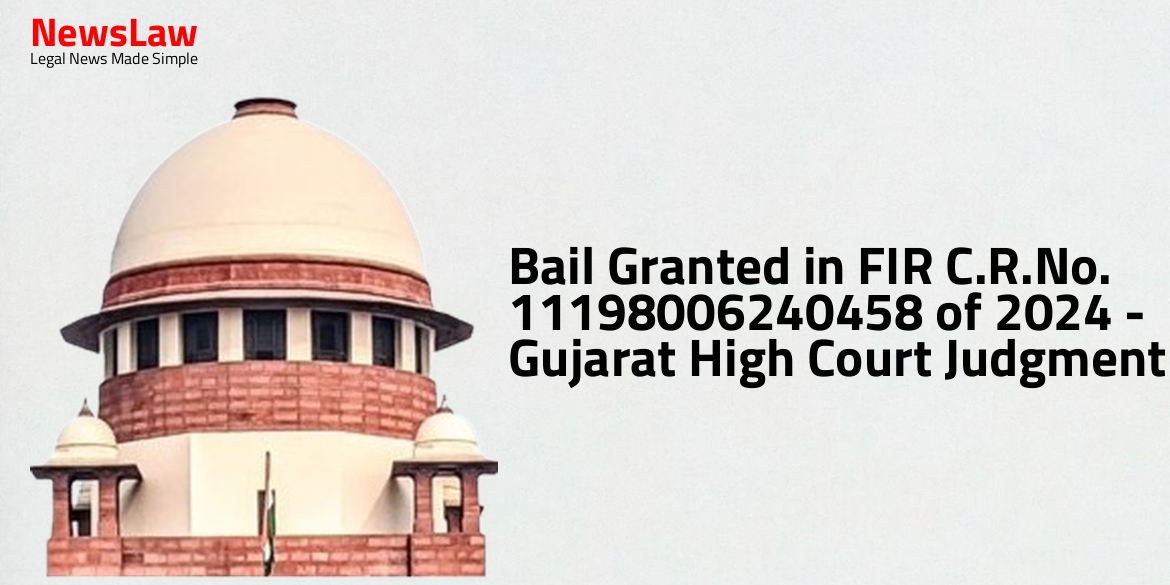In a recent judgment by the Gujarat High Court, a decision was made in the Laksh Management Consultancy case regarding bail. The Court’s ruling marks a crucial development in the ongoing legal proceedings. Follow the latest updates on this case to learn more about the implications of this decision.
Facts
- The applicant is seeking regular bail under Section 439 of the Code of Criminal Procedure.
- The FIR was filed against the applicant for offences under Sections 406, 420, and 114 of the Indian Penal Code.
- The incident in question allegedly occurred between 01.08.2019 to 20.08.2023, with the FIR lodged on 20.08.2023.
- The applicant, the owner of Laksh Management Consultancy, is accused no.1 in the case.
- The applicant’s business involved assisting individuals in obtaining work permits and student visas for Canada.
- Clients paid Rs.3,00,000/- per person with the understanding that if the promised work was not completed, a refund would be issued.
- The complaint alleges that the applicant failed to refund money to clients whose work permits or visas were not processed further due to interview failures.
- The applicant has been in judicial custody since his arrest on 20.08.2023, with the investigation now complete and a chargesheet submitted.
Arguments
- The role of the applicant is clearly mentioned in the chargesheet.
- A chart detailing the repayment of amounts to candidates was presented by the advocate.
- During the Covid-19 period, some candidates were repaid due to interview criteria set by the concerned country.
- Offences are triable by Magistrate courts with a maximum punishment of less than 7 years.
- Case heavily relies on documentary evidence collected during the investigation.
- Four FIRs have been filed against the applicant, with bail granted in one case and proceedings ongoing in two cases.
- The trial involves over 300 witnesses, expected to prolong the proceedings.
- Advocate cited the judgment of Lalit Chaturvedi & Ors. Vs. State of Uttar Pradesh & Anr. for bail considerations.
- More than 31 complaints registered against the present applicant under Section 138 of the NI Act.
- Applicant collected over 3,57,83,500/- from witnesses promising work permits.
- Statements of 315 persons recorded during investigation revealing applicant’s direct involvement.
- Applicant pocketed significant amounts from gullible persons, failing to repay as promised.
- Cheques given to witnesses bounced, indicating fraudulent intent.
- Learned APP urges against entertaining the application considering these facts.
Analysis
- The present applicant’s role at the time of the crime was considered along with the co-accused.
- All the offenses are exclusively triable by the Court of Magistrate.
- The prosecution’s entire case relies on documentary evidence collected by the investigating officer.
- Over 300 witnesses are cited in the chargesheet, leading to a lengthy trial process.
- The applicant has repaid the agreed-upon amounts to most of the candidates involved.
- The Court considered the law laid down by the Hon’ble Apex Court in the case of Sanjay Chandra v. Central Bureau of Investigation, [2012] 1 SCC 40, and in the case of Satender Kumar Antil v. Central Bureau of Investigation & Anr., (2022) 10 SCC 51.
- In light of the nature of the allegations in the FIR and the overall circumstances of the case, the Court decided to exercise discretion and grant regular bail to the applicant without delving into detailed evidence.
- Based on a prima facie analysis, the Court found this to be a suitable case for the applicant to be released on regular bail, resulting in the approval of the present application.
Decision
- The applicant is ordered to be released on regular bail for FIR C.R. No.11196003230675/2023.
- The bail amount is set at Rs.50,000 with two sureties of the same amount.
- Conditions of bail include not misusing liberty, not hindering prosecution’s interests, surrendering passport if any, not leaving Gujarat without permission, and reporting to the police station every alternate Monday for six months.
- The trial court should not be influenced by the preliminary observations made by the Court during the bail order.
- The rule is made absolute to the above extent, and direct service is permitted.
- The bail bond should be executed before the lower court with jurisdiction over the case.
Case Title: KRUNAL DILIPRAV NIKAM Vs. STATE OF GUJARAT
Case Number: R/CR.MA/6809/2024



